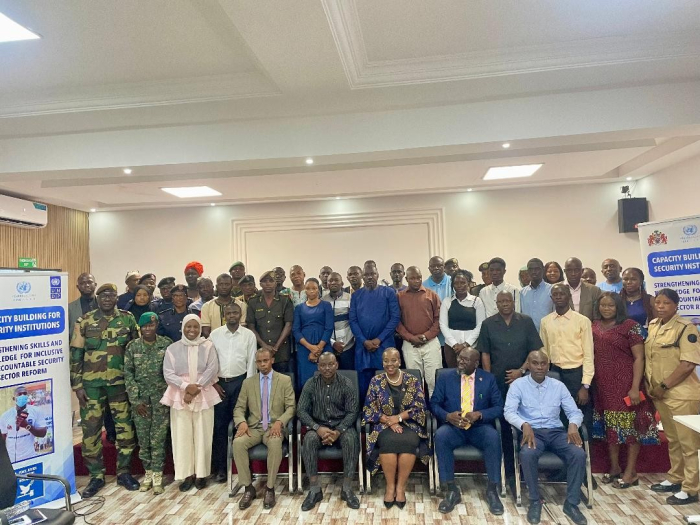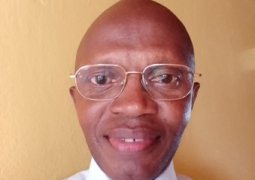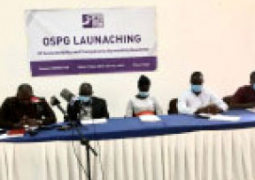
The event, held at the Metzy Residence Hotel, is being implemented by the Office of National Security (ONS) in partnership with the United Nations Development Programme (UNDP) and supported by the UN Peacebuilding Fund alongside partner agencies UNODC and OHCHR.
The training attracted representatives of security institutions, civil society organisations, National Assembly members, and international partners, with the goal of equipping participants with enhanced skills and knowledge in building a more inclusive, accountable, and professional security sector.
The initiative is part of a three-year UNDP programme aimed at sustaining The Gambia’s peaceful transition by supporting the national SSR strategy. With backing of international partners and strong national ownership, organisers are optimistic that the country is well on its way to consolidating reforms that will secure peace, justice, and stability for generations to come.
In her keynote address, Mandisa Mashologu, UNDP Resident Representative, reaffirmed the UN’s commitment to working with Gambian institutions to strengthen peace and good governance.
“This training on security sector reform, human rights, and gender is timely and directly supports the government’s goal of building professional, accountable, and effective security institutions that uphold human rights and advance The Gambia’s vision for lasting peace and sustainable development,” she said.
Mashologu commended the Office of National Security for its leadership, while extending appreciation to the Peacebuilding Fund and partner agencies for their support.
The new UNDP Strategic Plan (2026–2029), she further explained, places special emphasis on national ownership of SSR, gender equality, human rights, and democratic oversight, aligning closely with The Gambia’s own aspirations for professional and trusted institutions.
“By emphasizing democratic oversight, gender mainstreaming, and meaningful civil society engagement, the plan strengthens UNDP’s position as a key partner in advancing SSR and sustaining peace in The Gambia and beyond.” she added.
Speaking on behalf of the National Security Adviser, Col. Omar B. Bojang, Deputy National Security Adviser, reminded all to take SSR not merely as a technical reform, but as a reflection of national values and aspirations.
“The successful implementation of Security Sector Reform requires skills, knowledge, and capacity. But accountability, transparency, human rights, and gender sensitivity are not just theoretical concepts; they are the pillars of a credible, trusted, and sustainable security sector,” Bojang stated.
Col. Bojang highlighted that the long-term viability of reforms depends on strengthening the competence and professionalism of security actors across all sectors.
Thus, the training, he said, is designed to foster engagement among institutions, promote open dialogue, and instill the values needed to build trust between the state and its citizens.
“Reform is not a one-time event, but a process. And this process, the legacy, and the dedication of all stakeholders are paramount. Over the next five days, we must embrace cooperation, collaboration, and partnership to achieve a security sector that truly reflects the aspirations of our people,” he concluded.
The National Assembly Select Committee on Defense and Security, represented by Hon. Abdou Sowe, also lauded the current achievement and transformation of The Gambia’s security institutions since 2017.
“As an oversight body, we have seen significant changes in how the security services engage with civilians. The reforms have created greater transparency, accountability, and interaction with the people - a sharp contrast to the fragility of years past.” Sowe observed.
The training programme in the coming days will cover four key SSR concepts namely: the roles of security actors, democratic oversight, human rights, and gender inclusivity.
At the event, participants are expected to examine intelligence, defense, law enforcement, and oversight mechanisms, with emphasis on creating professional and accountable institutions that the people can trust.





